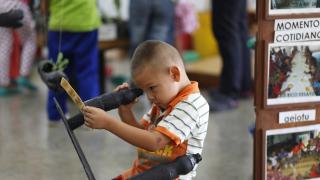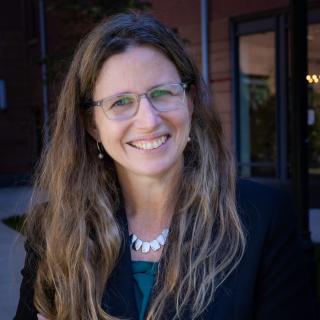Implementing aeioTU
Quality Improvement Alongside an Efficacy Study—Learning While Growing

July 5, 2019
By Milagros Nores, Alexandra Figueras‐Daniel, Maria Adelaida Lopez, & Raquel Bernal
Effectiveness trials of increasing childhood development interventions across low‐ and middle‐income countries have shown significant variability. The strength and consistency of benefits for children are dependent on program quality, and this requires paying attention to program implementation. In this paper, we summarize findings on program quality and teacher practices and perceptions for the aeioTU program, a center‐based Reggio‐inspired program in Colombia, now serving more than 13,000 children. The research found engaged, committed staff who valued the emergent approach and understood the children as requiring opportunities to express themselves, being the source for the curriculum, and having relationships with the materials around them. Although the average classroom quality was low in 2011, it increased significantly by 2014, particularly in the language and reasoning and interactions items. Indicator‐level analyses showed that higher‐order interactions and language processes were observed in a large proportion of classrooms by 2014. Teachers’ self‐reports on the environment and their teaching and learning showed high levels of quality by 2013. These findings illustrate the significance of process data for program improvement, especially when a program is young. Program quality can be raised after teachers improve their skills, have experience enacting a curriculum, and after training has been strengthened in response to information, while simultaneously scaling up the program.
Featured in the Annals of the New York Academy of Sciences Special Issue.
The Authors
Dr. Milagros Nores is the Co-Director for Research and Research Professor at the National Institute for Early Education Research (NIEER). With a profound expertise in early childhood evaluation, informing data-driven policy and programming, cost and benefits of early interventions, evaluation design, equity, and English language learners, she has established herself as a leading researcher in the field of early care and education.
Dr. Figueras-Daniel was awarded a Young Scholars Program grant from the Foundation for Child Development to investigate coaching and professional development of Latina preschool teachers working with DLLs. At NIEER, she leads this study as well a project to develop a Latina leadership pipeline in ECE.

